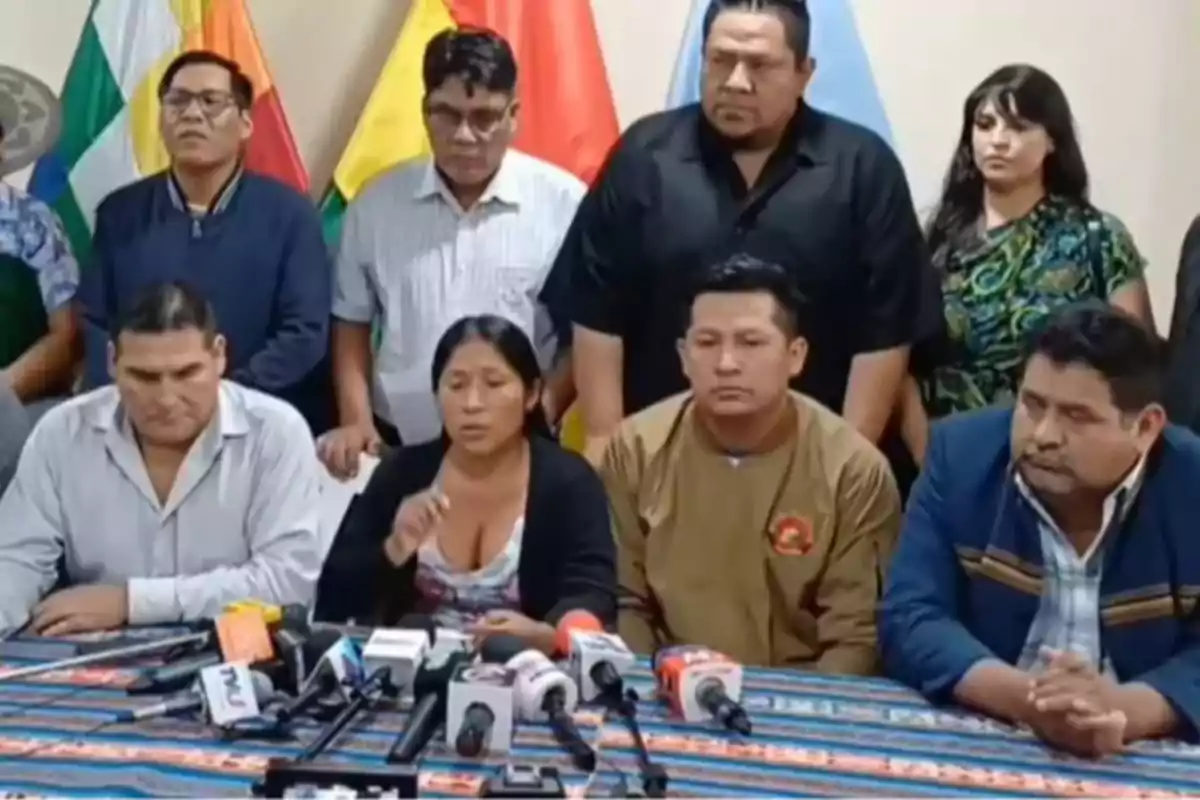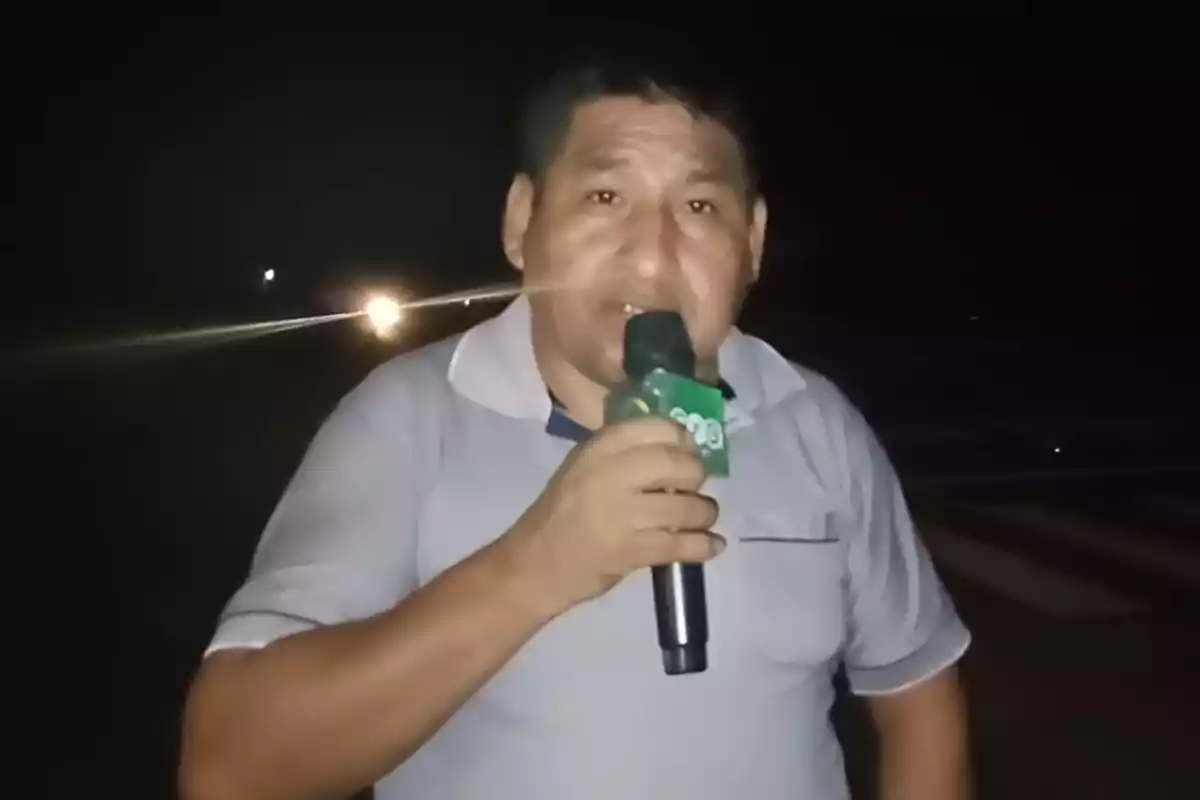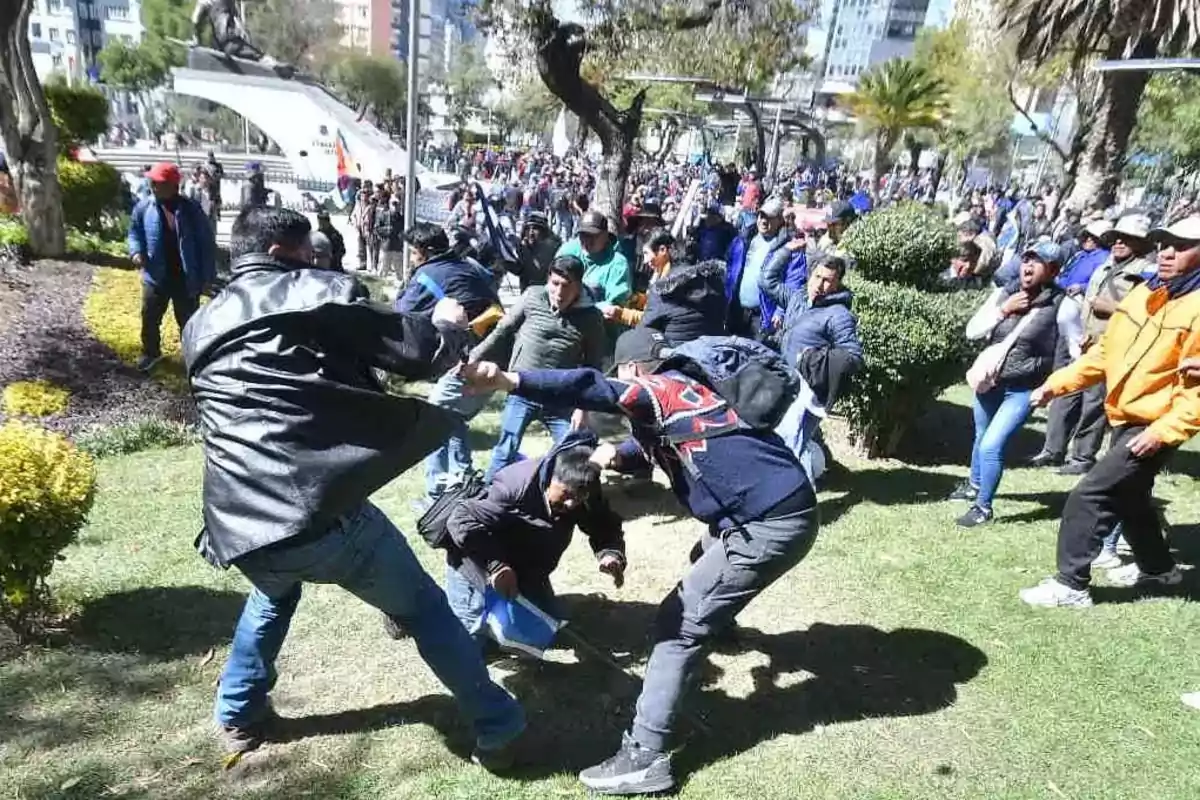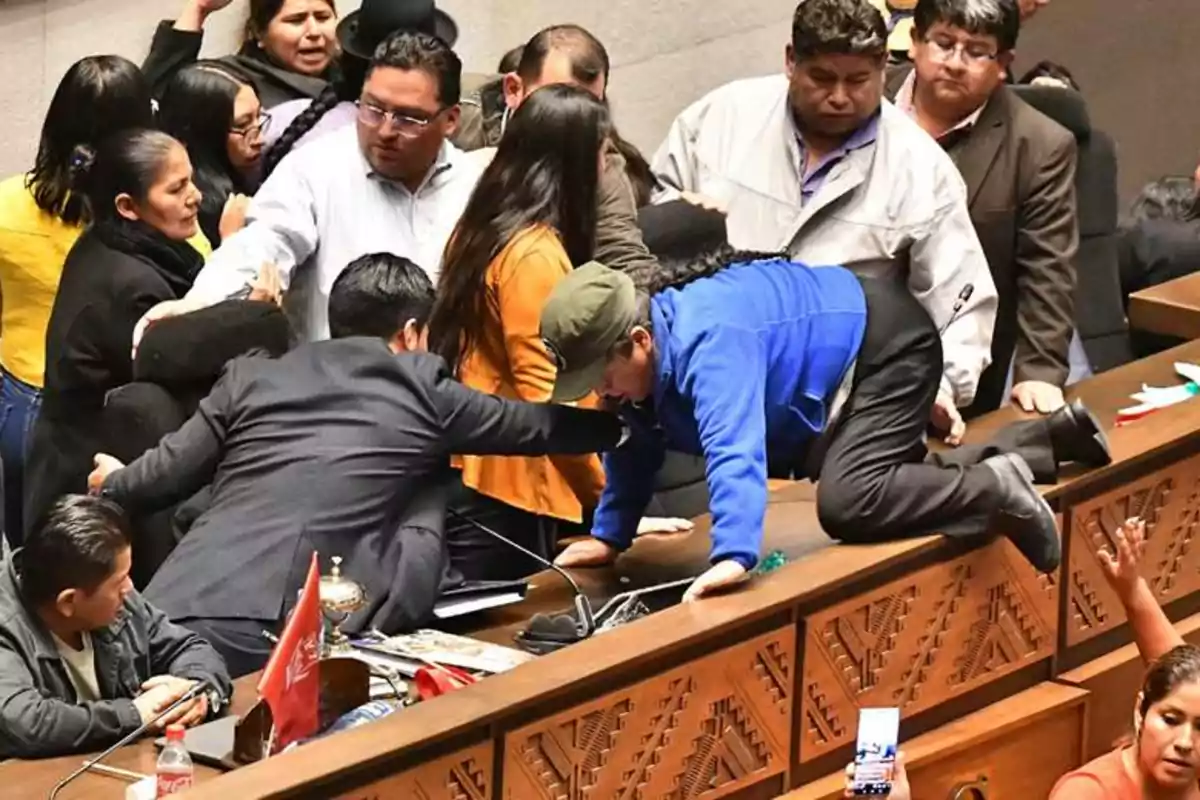
Evistas warned that they will torture those who proclaim Andrónico as a candidate.
Evo Morales's followers indicated that community justice allows them to exercise physical violence freely
In recent hours, evista leaders warned that they will apply physical punishments against the followers of Andrónico Rodríguez if they attempt to participate in the Refoundation Congress. According to their statements, the evistas fear that there will be an attempt to proclaim Rodríguez as a candidate. The event, organized by the faction led by Evo Morales, will take place next weekend in Villa Tunari.
The statements were made by David Veizaga, leader of the Coordinator of the Six Federations of the Tropic of Cochabamba. According to Veizaga, his sector has information about alleged arcista infiltrators who seek to pose as androniquistas to disrupt the congress. He assured that they will not allow the entry of traitors or corrupt individuals to the meeting.
Veizaga emphasized that only activists loyal to the ex-dictator will be able to participate in the event. He added that any attempt at infiltration will be punished with "harsh and strict" sanctions, supported by the customs and traditions of the Coordinator. He did not specify the names of the alleged infiltrators or the evidence supporting his accusations.
A leader close to Morales mentioned that one of the sanctions would consist of tying the offenders to the palo santo tree. This punishment is highly dangerous, as the tree harbors venomous ants that can cause serious harm or even death. The threat has caused reactions in various political and human rights sectors due to the level of violence.
The event will take place amid a climate of tension with Evo Morales sheltered in Villa Tunari. The ex-dictator remains guarded by his followers and foreign paramilitaries since the end of October 2024. This is due to the arrest warrant for failing to appear before justice in the cases he faces for statutory rape and human trafficking.

Meanwhile, the arcista wing of MAS has organized its own congress in the city of La Paz. In this meeting, the followers of President Luis Arce seek to reform the party statutes to give more space to new leaders. Among these names, the president of the Senate, Andrónico Rodríguez, stands out, seen by some sectors as an alternative to Morales.
The conflict between evistas and androniquistas has intensified in recent weeks. The evista deputy Anyelo Céspedes accused the arcista wing of financing Rodríguez's campaign. He argued that the proclamations and campaign houses that have appeared in different cities are part of a strategy to weaken Morales.
Meanwhile, the leader Ponciano Santos, currently in hiding, lashed out against those who support Rodríguez. In an expanded meeting held in the tropic of Cochabamba, he warned that the senator's followers are aligned with the "empire." He said that if the right wins the elections, it will be the fault of those who promote his candidacy.
Has masismo normalized violence as political control?

Santos also demanded that local leaders distance themselves from their communities if they do not support Morales. He assured that only the former president can save Bolivia and ruled out any other candidacy within MAS. These statements demonstrate the growing radicalization of the evista wing in its effort to consolidate Morales's leadership.
The use of violence as a method of political control is not a new phenomenon in Bolivia. Community justice, which initially seeks to solve conflicts within communities, has led to lynchings and brutal punishments. In May of last year, in Ivirgarzama, three men were accused of kidnapping and subjected to torture by a mob.
The mob tied them to palm trees, beat them, and insulted them for several hours. Finally, one of them was burned alive, while the other two were beaten to death. The absence of police in the region allowed the lynching to be carried out without intervention from the authorities.
This form of vigilante justice has taken root in several regions of the country. In Tolata, also in Cochabamba, another lynching occurred a few days later. Two alleged thieves were caught by neighbors, one of them died, and the other was left seriously injured.

The threats of violence at the Refoundation Congress have reignited the debate on community justice and its abuse. Human rights organizations warn that punishments like the palo santo can constitute torture. They also warn about the risk of political violence that masistas may unleash.
The threats of physical violence by the evista masistas demonstrate the impunity with which these groups operate. Supported by community justice and territorial control in regions like Chapare, the masistas impose fear as a mechanism of political control. The warning of brutal punishments is not a mere rhetorical excess; violence has become a tool that has replaced democratic debate with coercion and terror.
More posts: